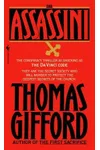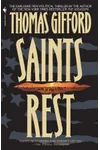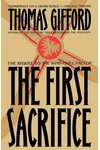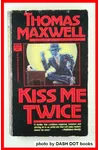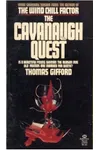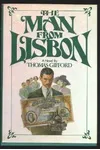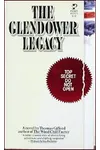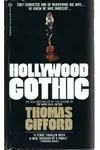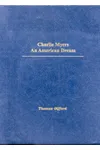Picture a storyteller who spun tales of international intrigue, blending history with heart-pounding suspense—meet Thomas Gifford! This American author captivated readers with thrillers like The Glendower Legacy and The Assassini, crafting narratives that danced between Cold War conspiracies and Vatican secrets. With a knack for vivid settings and relatable heroes, Gifford’s work feels as thrilling today as it did decades ago.
Born in the heart of Iowa, Gifford’s journey from Harvard grad to bestselling novelist is a story of grit, talent, and a love for weaving complex tales. Let’s dive into the life and legacy of this master of the thriller genre!
The Making of Thomas Gifford
Thomas Eugene Gifford was born on May 16, 1937, in Dubuque, Iowa, a small town that later became the backdrop for his final years. A Harvard graduate with a flair for creative writing, Gifford honed his craft early, earning awards for his storytelling. After college, he moved to Minnesota, working as a textbook salesman before diving into writing. His first book, Benchwarmer Bob (1974), a biography of a Minnesota Vikings player, showed his ability to capture real-life drama, but it was his thrillers that would make him a household name.
Gifford’s early career was shaped by his love for history and his sharp eye for human motivations. Married twice—first to Kari Sandven, with whom he had two children, and later to actress Camille D’Ambrose—he lived a life as colorful as his novels, splitting time between Minnesota, Los Angeles, and New York before returning to his Iowa roots.
Thomas Gifford’s Unforgettable Stories
Gifford’s novels are a masterclass in suspense, blending global settings with intricate plots. His breakthrough, The Wind Chill Factor (1975), introduced John Cooper, a character grappling with neo-Nazi conspiracies in a chilling, atmospheric tale. The novel won the Putnam Prize for best first novel, cementing Gifford’s place in the thriller world.
The Glendower Legacy (1978) took a bold swing, imagining George Washington as a British spy. This Edgar-nominated novel follows a Harvard professor and a feisty reporter racing against the KGB and CIA to uncover a dangerous document. Adapted into the 1981 film Dirty Tricks, it showcased Gifford’s knack for blending historical what-ifs with pulse-pounding action. Then came The Assassini (1990), a Vatican thriller that predated Dan Brown’s The Da Vinci Code. Centered on lawyer Ben Driskill investigating his nun sister’s murder, it weaves Renaissance-era assassins with modern church conspiracies—a nine-year research labor that paid off in gripping prose.
Gifford’s style? Think ordinary heroes thrust into extraordinary stakes, paired with evocative settings—stormy Irish coasts, shadowy Vatican archives—and a touch of romance. Writing under pseudonyms like Dana Clarins and Thomas Maxwell, he explored everything from espionage to historical mysteries, always with a nod to the human heart.
Why Thomas Gifford Matters
Gifford wasn’t just a thriller writer; he was a pioneer. His global scope and layered characters set the stage for modern authors like Dan Brown and Frederick Forsyth. By tackling bold ideas—like Washington as a traitor or the Catholic Church as a criminal entity—he invited readers to question history while keeping them on the edge of their seats. His work, though sometimes leisurely paced, resonates for its depth and authenticity.
Despite his death from cholangiocarcinoma in 2000, Gifford’s legacy endures. His novels remain a treasure trove for thriller fans, offering lessons in crafting suspense with soul. In Dubuque, where he renovated his childhood home, locals still celebrate their “prodigal son” who lived by his credo: “We’re not here for a long time; we’re here for a good time.”
- Born: May 16, 1937, Dubuque, Iowa
- Key Works: The Wind Chill Factor, The Glendower Legacy, The Assassini
- Awards: Putnam Prize (The Wind Chill Factor), Edgar Award nominations (The Cavanaugh Quest, The Glendower Legacy)
- Died: October 31, 2000, Dubuque, Iowa
Snag The Assassini or The Glendower Legacy and dive into Thomas Gifford’s world of thrilling conspiracies—you won’t be disappointed!
